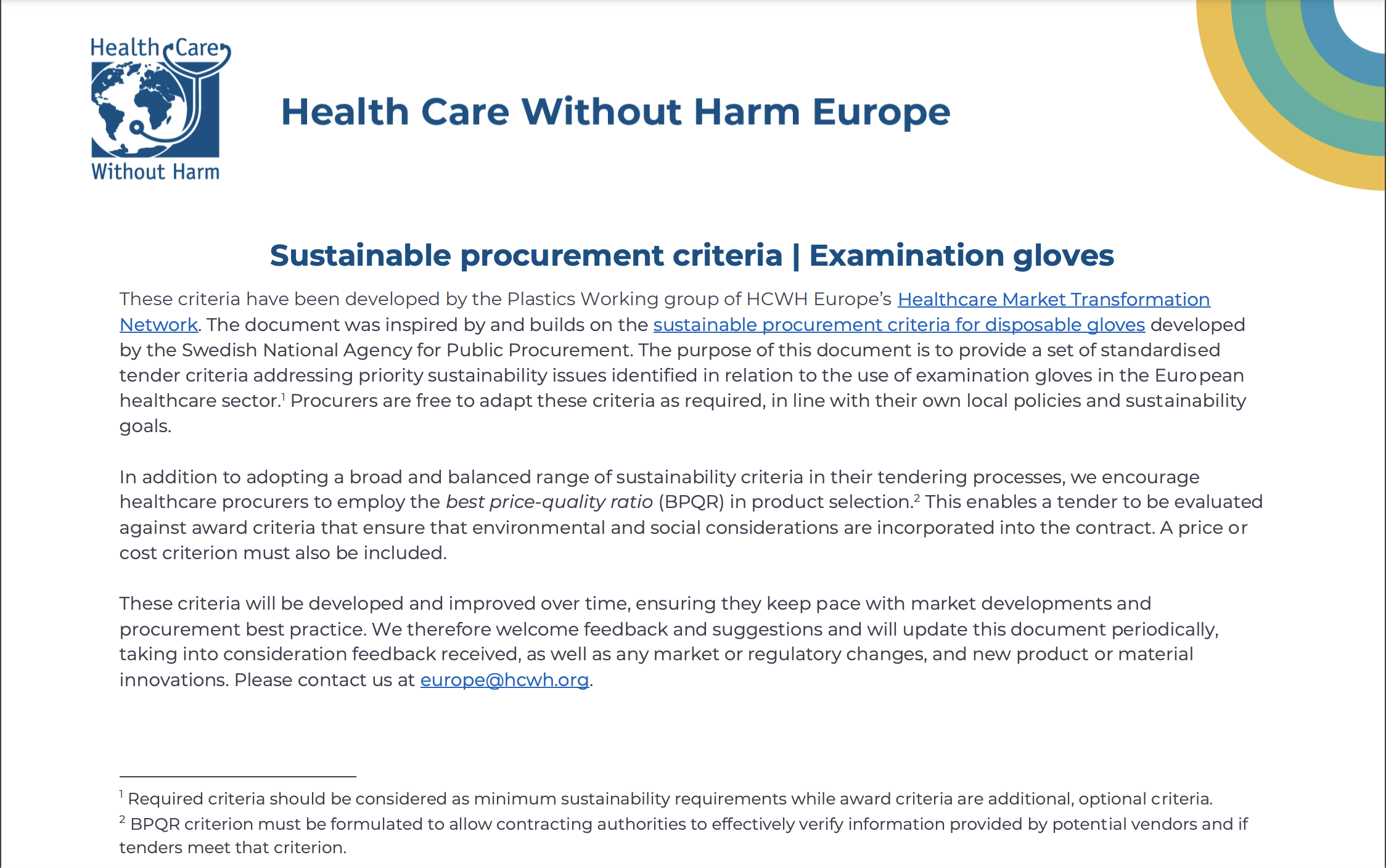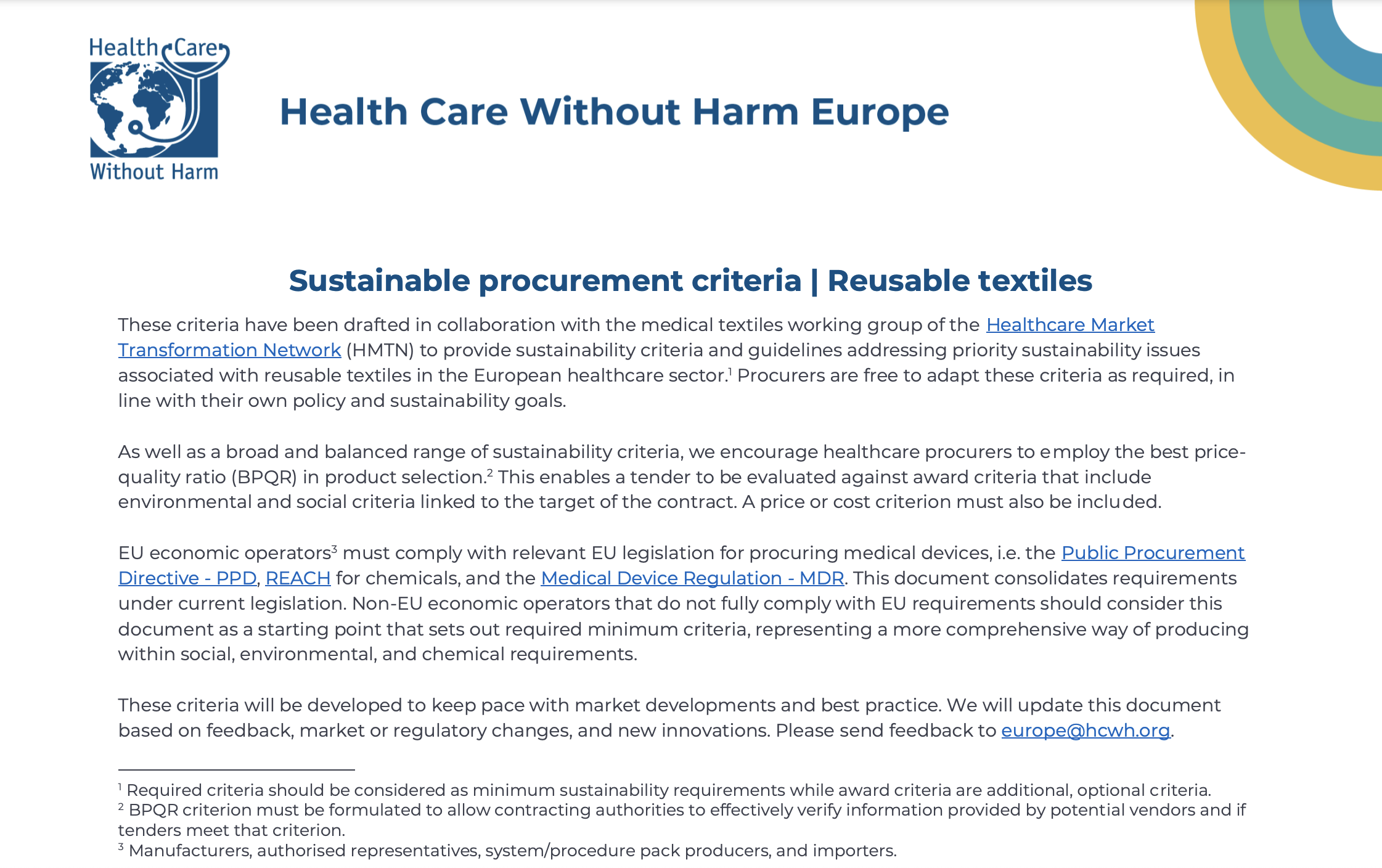New criteria for sustainable healthcare products
 Experts from across Europe have come together to produce new sets of sustainability criteria for disposable gloves and reusable medical textiles. Focussed on examination gloves and reusable medical textiles, these sets of criteria have been drafted with the support of the Healthcare Market Transformation Network (HMTN) to provide sustainability criteria and guidelines for healthcare procurement teams.
Experts from across Europe have come together to produce new sets of sustainability criteria for disposable gloves and reusable medical textiles. Focussed on examination gloves and reusable medical textiles, these sets of criteria have been drafted with the support of the Healthcare Market Transformation Network (HMTN) to provide sustainability criteria and guidelines for healthcare procurement teams.
Built in collaboration with procurement, healthcare, and product specialists, the aim of these documents is to support healthcare procurers by providing a variety of inspirational sustainability-related criteria for reusable textiles and examination gloves to use in relevant tenders and achieve healthcare institutions’ sustainability goals. Together, hospitals and healthcare systems across Europe can use their purchasing power to increase demand for sustainability.
Sustainable procurement criteria

 Examination gloves Reusable textiles
Examination gloves Reusable textiles
Primarily made from plastics and mostly single-use, medical textiles and examination gloves have been identified as priority products to reduce and replace with more sustainable alternatives. The excessive production of these items, which has only increased since the pandemic started, undermines our health and environment. Plastic production continues our reliance on fossil fuels, especially at the current scales of production. These products have a significant ecological footprint at all stages of their lives, after a short, single-use life, disposable products continue to harm the environment and our health through disposal. Reducing the unnecessary use of plastic products is a crucial element of a plastics reduction strategy and can be followed by sustainable procurement criteria.
Examination gloves
For many hospitals, disposable gloves are the plastic items purchased in the most significant quantities - in one hospital in Spain, gloves represent 17.51% of the total plastic waste by weight. Within this new set of criteria, there are many opportunities to reduce the environmental footprint of gloves and therefore address a large part of plastic used in healthcare. The criteria also include social criteria that can help to address significant labour rights concerns in the supply chains of gloves.
Reusable medical textiles
Single-use textiles represent a high proportion of the total plastic waste generated in healthcare, e.g. medical protective clothing, drapes, or bed pads. Reusable textiles offer a more sustainable alternative, reducing not only waste but also costs. There is also further potential for reducing hazardous chemicals in reusable products. Reusable medical textiles also offer other benefits, including improved comfort for the user.
The linear, take-make-dispose approach needs to be transformed into a closed and circular model that reduces waste and supports both climate goals and zero-pollution ambitions. These criteria set the minimum requirement for reusable textiles in procurement, encouraging the shift towards reusability and sustainability.
The healthcare sector itself has a large footprint. By addressing some of the most commonly used items with common sustainability criteria, we can increase the potential for scaling up the sector’s demand for sustainable medical textiles.
Once these criteria are in use and suppliers adapt their products and services, it will become quicker and easier for other healthcare institutions to implement sustainability practice in their procurement, rewarding the most progressive and innovative suppliers.
